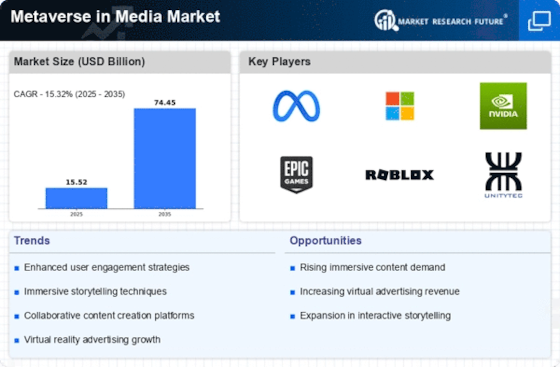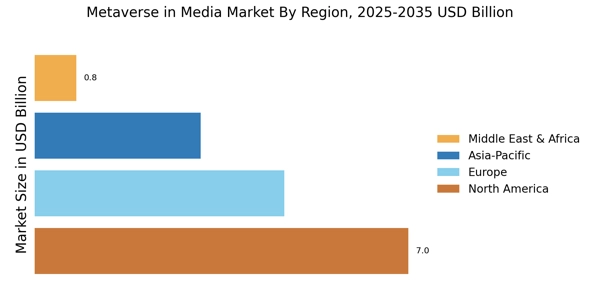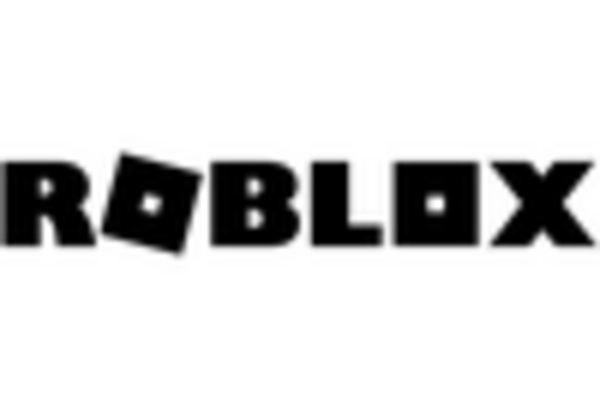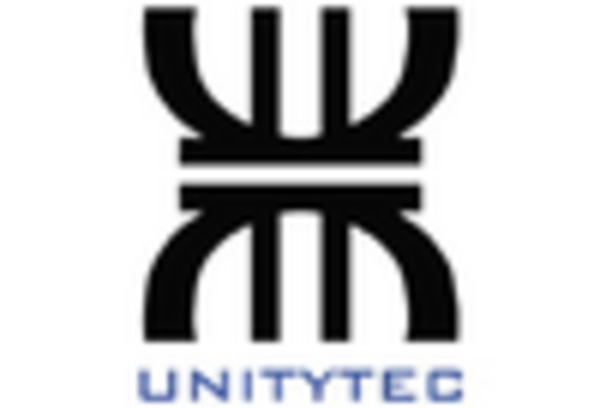Increased Investment
Investment in the Metaverse in Media Market is surging, driven by both established media companies and new entrants. Major players are allocating substantial resources to develop immersive content and platforms. For instance, reports indicate that investments in the metaverse ecosystem could exceed 10 billion dollars annually by 2025. This influx of capital is likely to accelerate innovation and competition within the industry, leading to a diverse array of offerings. As more companies recognize the potential of the metaverse, the landscape of media consumption is expected to transform, creating new opportunities for engagement and monetization.
Technological Advancements
The Metaverse in Media Market is experiencing rapid technological advancements that enhance user experiences. Innovations in virtual reality (VR) and augmented reality (AR) are pivotal, as they allow for more immersive storytelling and interactive content. According to recent data, the VR market is projected to reach a valuation of approximately 44 billion dollars by 2024, indicating a robust growth trajectory. These advancements not only improve the quality of media consumption but also expand the creative possibilities for content creators. As technology continues to evolve, the Metaverse in Media Market is likely to see an influx of new tools and platforms that facilitate richer, more engaging experiences for users.
Emerging Monetization Models
The Metaverse in Media Market is witnessing the emergence of innovative monetization models that cater to diverse consumer preferences. Traditional advertising methods are being supplemented with new strategies such as virtual goods sales, subscription services, and pay-per-experience models. Reports indicate that the virtual goods market alone could reach 190 billion dollars by 2025, highlighting the potential for revenue generation. These new models not only provide financial incentives for content creators but also enhance user engagement by offering personalized experiences. As these monetization strategies gain traction, the Metaverse in Media Market is poised for substantial growth and transformation.
Changing Consumer Preferences
Consumer preferences are shifting towards more interactive and immersive media experiences, which is a key driver for the Metaverse in Media Market. Audiences are increasingly seeking content that allows for participation and engagement rather than passive consumption. Surveys indicate that over 70% of consumers express interest in participating in virtual events and experiences. This trend suggests a growing demand for platforms that facilitate user interaction and community building. As media companies adapt to these changing preferences, the Metaverse in Media Market is likely to evolve, offering innovative formats that cater to the desires of modern audiences.
Expansion of Social Media Integration
The integration of social media platforms into the Metaverse in Media Market is becoming increasingly prevalent. Social media companies are exploring ways to create immersive experiences that blend traditional media with interactive elements. This integration allows users to share experiences in real-time, fostering a sense of community and collaboration. Data suggests that social media users are more likely to engage with content that offers interactive features, which could lead to higher retention rates. As social media continues to evolve, its role in shaping the Metaverse in Media Market will likely expand, creating new avenues for content distribution and audience engagement.

















